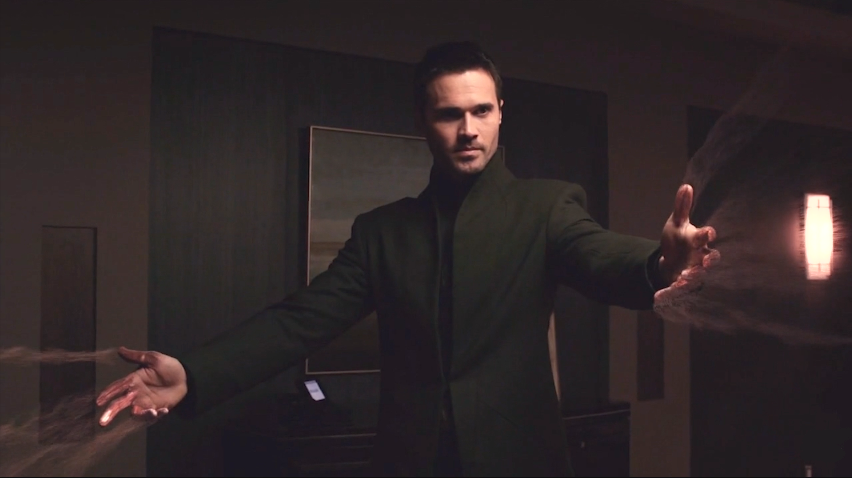Six Shallow Criticisms Of Christian Movies
After I finished my article inspired by The Resurrection of Gavin Stone for Christianity Today, I looked for what other web writers had to say about this independently Christian-made drama-comedy that features none other than Brett “Hail Hydra” Dalton in the starring role.
Alas, I found some familiar shallow Christian movie criticisms, which don’t do much to actually evaluate Christian movies on their own terms, or seek to improve these genres.
Some of these shallow criticisms are subtle. Others are easier to find. I spotted these six:
1. ‘This story is about happier things, so it’s unrealistic.’
Gavin Stone released a few weeks after the Martin Scorsese missionary drama Silence. Plenty of my Christian friends are Silence fans, and I can certainly see that film’s appeal.
But some film buffs seem tempted to feel that only dark, realistic, suffering-oriented stories are worth our time, while other movies that show the sunnier sides of life are less-spiritual. This view seems to reflect an assumed “high culture” vs. “low culture” divide. It also reflects a scheme proposed by C.S. Lewis’s demon Screwtape to confuse us about what is “real”:
The general rule which we have now pretty well established among them is that in all experiences which can make them happier or better only the physical facts are “Real” while the spiritual elements are “subjective”; in all experiences which can discourage or corrupt them the spiritual elements are the main reality and to ignore them is to be an escapist. […] Your patient, properly handled, will have no difficulty in regarding his emotion at the sight of human entrails as a revelation of Reality and his emotion at the sight of happy children or fair weather as mere sentiment[.]

Or you could be Brett Dalton, who does both “the sight of fair weather” and “the sight of human entrails.”
Christian movies like to show “happy children or fair weather,” sometimes far too often. (And moments of suffering are too often easily resolved.) But these things are also realistic. We don’t need to see things like “the sight of human entrails” to see what Reality truly is.
2. ‘This story is bad because it doesn’t show what I think Christianity is.’
Some reviewers seem to dismiss Christian movies because they don’t show a certain real-world or else idealistic picture of the Christian faith that the reviewer would prefer to see.
For example, AV Club’s Jesse Hassenger opined that Gavin Stone’s title character “starts helping out at a church so mega that no one goes up for communion—it’s passed around as congregants stay in their seats.” But it’s not only megachurches that pass the Lord’s Supper elements in trays. With one Methodist exception, every church I’ve attended, big and small, distributed communion this way—Missionary Alliance, Presbyterian, Baptist, and more.
Hassenger says “the movie quietly conflates [born-again Christianity] with all Christianity, just as it conflates megachurch services with all Christian worship.” But Hassenger himself concedes that Gavin Stone’s characters never say this themselves. Rather, the story simply reflects particular Christian subculture, apparently outside this writer’s experience. The story necessarily stays agnostic about, say, progressivistic strains of Christianity, or Eastern Orthodoxy. (I’m guessing Scorsese’s Silence also stays agnostic about Protestantism.)
Meanwhile, even friendly Christian critics might fault a Christian movie for something it never tried to be. A socially conscious Christian critic might suppose that a movie’s sunny exploration of a white American Christian middle-class family ought to have also exposed institutional racism, instead of limiting the criticism to what this movie sets out to do.
In either case, this criticism overlaps with the following criticism:
3. ‘This movie or genre for “the faithful” annoys me by existing.’
Some secular reviewers of Christian movies like to use the phrase “the faithful” to describe these movies’ core fanbase. I’m not sure why this phrase is so common. (I found it three times alone in Luke Thompson’s review of Gavin Stone for Forbes.)
Often the phrase connotes a dismissive attitude: “Eh, I guess this sort of thing may be well and good for Those sorts of people.” And I wonder why we see this sense of annoyance.
While waiting in line for Gavin Stone tickets, I spied the theater’s printed reminder that a specific showtime for XXX: Return of Xander Cage would be dubbed in Hindi. I thought: Well, that’s great, Hindi-speaking folks will also get to see Vin Diesel plowing motorcycles horizontally through fiery explosions, yet while hearing him in their own language.
Shouldn’t fair-minded critics feel the same way about Christian movies in general market distribution that reflect churchgoers’ enjoyments in their own language?
What about Christian critics who suspect their fellow Christians really shouldn’t have a subculture at all, but should only pursue general-market stories that appeal to everyone and are somehow utterly Christian-jargon free (unlike reality)? I’ve touched on that here.
4. ‘It’s too preachy.’
Some Christian movies really are too preachy. But even if they must preach, the sermons tend to be moralistic and are not particularly biblical. For instance, the story of War Room can’t help “preaching” that if you pray better, God will spiritually heal your family. God’s Not Dead “preaches” that if you master the right apologetics arguments, you can really whup the atheists good and become evangelicaldom’s best attempt at popular-culture celebrity.
I believe Christian movies should focus on creative storytelling anyway. They should not attempt the mission of biblical pastors—just as biblical pastors should preach the Bible and not attempt chiefly to tell stories and entertain. (Gavin Stone gets closer to this ideal.)
Unfortunately, critics may say “the story is too preachy” but really mean to say something like “the story deals with overt Christian ideas.” Before long the “it’s preachy” criticisms all sound the same, especially to some Christian movie supporters, who ignore the criticisms and go on supporting movies that falsely sermonize rather than truthfully story-tell.
5. ‘The story is not just badly made, but actually morally bad.’
Some Christian movie-criticism from good Christians can end up sounding like legalistic condemnation. After all, most Christian movie fans aren’t themselves legalists who shun cinema and movies as the work of Satan. In fact, they gave up that notion a long time ago. They are fine with movies as harmless-yet-spiritually-beneficial entertainment. So what happens if they hear “that movie is bad and you shouldn’t enjoy it”? They think: Legalism.
Critics need to affirm the goodness, truth, and beauties that are found in Christian movies, just as we would affirm the goodness, truth, and beauties in any other cultural text.
6. ‘It’s just a movie.’
Christian movie critics and supporters may malign, or excuse, a Christian movie with these words: “It’s just a movie.” But especially for movie supporters, I think I’ve heard this phrase often right alongside the sometimes hyperbolic rhetoric used to promote a film: “It’s life-changing. It could lead a revival in this nation. It will Send a Message to Hollywood.” Well, if so, wouldn’t a story with that kind of positive power also have power to work great evil?
No movie is ever “just a movie.” It reflects the ideas, motives, and creativity of its human creators. They are never “just people.” They are God’s handiwork. Their movie matters as the artistic impression of God’s image-bearers—and, like a mirror, can reflect all at once both humanity’s broken reflection and the reflection that gives us glimpses of the Creator.
We need optimists about Christian movies, and critics who will challenge our storytellers to aim higher—into deeper ideas and improved creative craft. Toward that end, Christian movie critics, let’s sharpen our own craft and show a better example to our spiritual family.





























Okay, I admit it–I fall into #3 a lot. Especially when we try to have a family movie night at home with ‘God’s Not Dead’ instead of, say, Inside Out or X Men or that old standby The Princess Bride. Of course, it’s also tied into some hype aversion. Why does it seem acceptable to have a whole church hyped up over one movie and not another? One genre and not another? You don’t see church groups getting together for the latest romantic comedy, action flick, or superhero saga, so why the latest Kendrick brothers film?
I think this goes to show that people can certainly obsess over particular genres and thereby provoke irritation. I used to feel similarly about “family” movies, e.g. Disney and/or Pixar, versus stories that increasingly appealed to my enjoyment of fantasy and adventure. Any movie or genre becomes obnoxious when people we love (and/or live with) constantly obsess over it, or refuse to permit other kinds of stories.
Yeah, it’s an ever-present struggle not to error on the same side myself.
I’m surprised this post hasn’t exploded with comments, so I guess I will comment after all.
Great post and great review, Stephen. Learning about stuff like this is a real service for me. Part of the reason that I have to learn about Christian culture stuff like this film is that I’ve always been an outsider. My faith community was deeply evangelical, very conservative, and perhaps very typical as a Baptist church. I was immersed in it totally, and church was my life. But I still didn’t grow up with Christian culture all around me, and I never felt like I totally got what everyone was talking about on the Internet. It’s partly because I’m in the unchurched Rust Belt rather than the Bible Belt, but that’s only part of it. Some people I grew up with seem to have had more of a connection to an American evangelical culture, perhaps simply by being more socially connected to various evangelical spheres across the U.S. I guess it seemed inevitable that I wouldn’t find a place in the evangelical Baptist world. I’m unsure of whether or not I really wanted one, but I did really try to do my duty and to fit in.
Definitely various Christian groups deserve to keep their cultural identities. When I don’t fit in, it it’s my job to make my own culture, and whatever group wants to claim it can have it, since I don’t have time to obsessively try to define what I am and where I belong. I have to live the truest life that I can by God’s grace, and whatever categories my life ends up falling into, I will allow people to cast me as this or that kind of Christian or this or that kind of person, because it’s none of my business how other people see me. But I want to be free to still like cool people who do real things, even if I’m an alien to their sub-culture.
It’s hilarious that they cast Brett Dalton for this, because he was like some kind of anti-Jesus in S.H.I.E.L.D. It was an enormously playful casting decision that should bring some mainstream acknowledgement.